
- TROUBLE WITH BUBBLES
- 2014 Central Banker Report Cards | The Americas
- 2014 Central Banker Report Cards | Europe
- 2014 Central Banker Report Cards | Asia
- 2014 Central Banker Report Cards | Middle East & Africa
- Central Banker Summaries | The Americas
- 2014 Central Banker Summaries | Europe
- 2014 Central Banker Summaries | Europe
- 2014 Central Banker Summaries | Middle East & Africa
TROUBLE WITH BUBBLES
Global Finance presents its annual report on the performance of the world’s central bank governors.
Central bankers know how to pump out liquidity to keep their economies from sinking, but they have not learned how to keep new asset bubbles from forming. As investors search for yield in a low-interest-rate environment, they skate further out on thin ice, taking new risks. No one is sure what will happen when the recent experiments with quantitative easing reach their conclusion, but we will soon find out.
Massive stimulus is ending in the US, with the Federal Reserve winding down its purchases of bonds, although it will continue to keep rates low for some time. Nevertheless, Janet Yellen, the relatively new Fed chair, will ultimately face the consequences of the extraordinary easing of the Ben Bernanke years.
“The critical challenge for central bankers is trying to gauge how much slack exists in the economy,” says Mike Franklin, chief investment strategist at Beaufort Securities in the UK. “What they conclude will determine when they think it is appropriate to raise short-term interest rates,” he says. “If they underestimate the slack, they will be inclined to raise interest rates too soon and risk the health of the economic recovery. If they wait too long, inflationary pressures could force them to raise interest rates more quickly than their forward guidance commits them to.”
The Bank of England has hinted that it could be getting ready to raise interest rates early next year from a historic low of 0.5%. “In light of the heightened uncertainty about the current degree of slack, the [monetary policy] committee will be placing particular importance on the prospective paths for wages and unit labor costs,” Mark Carney, governor of the Bank of England, says. An anticipated increase in UK wages could be enough to persuade him to act.
While a handful of central bankers in emerging markets are battling high inflation, price rises across most economies remain under control. With global food prices falling and underlying inflationary pressures still low, inflation in emerging markets seems likely to remain subdued, according to economists at Capital Economics in London. “Although core inflation has picked up in Emerging Europe, it is Russia, Ukraine and Turkey that are largely to blame,” the economists say. “GDP growth remains relatively subdued, while a strong and sustained rebound that stokes domestic price pressures looks unlikely.”
One major concern, however, is that a continued rise in foreign exchange reserves by emerging markets central banks could unleash a wave of inflation. Central banks in Asia have amassed huge foreign currency reserves, as a result of buying up dollars to keep their currencies low and their exports competitive on global markets. China’s foreign reserves are nearing a record $4 trillion and account for 80% of the central bank’s assets. The State Administration of Foreign Exchange (SAFE) says the rapid accumulation of reserves is making it more difficult to steer the economy. “The excessively large foreign exchange reserves increase the domestic money supply and create potential domestic inflation pressure,” says Huang Guobo, chief economist of SAFE. Chinese officials are trying to balance the country’s international payments so that reserves don’t continue to increase.
The foreign currency reserves at other central banks in Asia, including those of Hong Kong, Singapore, South Korea and Taiwan, have all set new highs this year. The foreign reserves could help these central banks defend their currencies in the event that foreign capital suddenly flees, as it did in the summer of 2013, when the Fed first announced that it would cut back on its quantitative easing.
Central bankers in emerging markets are trying to cope with the fallout from developed markets’ fiscal and monetary policies and are sounding new alarms about the global economy. Raghuram Rajan, India’s central bank chief, says the lack of coordination between policymakers could trigger another crash in global financial markets. Persistently low interest rates in the West are lowering the cost of capital and distorting investment decisions, he says. Through currency wars and protectionism, countries are trying to push their problems onto their neighbors.
Although central bankers are not elected officials, they should be held accountable for their actions. Global Finance has published Central Banker Report Cards since 1994, grading central bankers of key countries on an “A” to “F” scale. The criteria include such areas as inflation control, economic growth, currency stability and interest-rate management, as well as the determination of central bankers to protect their independence in the face of political interference.
—Gordon Platt
2014 Central Banker Report Cards | The Americas
2014 CENTRAL BANKER REPORT CARDS | THE AMERICAS |
|||
|---|---|---|---|
Country |
Central Bank Governor |
Grade This Year |
Grade Last Year |
|
Argentina |
Juan Carlos Fábrega |
D |
N/A* |
|
Bolivia |
Marcelo Zabalaga Estrada |
B |
N/A** |
|
Brazil |
Alexandre Tombini |
B- |
B |
|
Canada |
Stephen Poloz |
B |
Too early to say |
|
Chile |
Rodrigo Vergara |
A- |
A- |
|
Colombia |
José Dario Uribe Escobar |
A- |
B+ |
|
Costa Rica |
Olivier Castro Pérez |
B |
N/A** |
|
Ecuador |
Diego Martínez |
B- |
D |
|
Guatemala |
Edgar Barquín Durán |
B |
N/A** |
|
Mexico |
Agustín Carstens |
B |
B |
|
Peru |
Julio Velarde Flores |
B+ |
B+ |
|
United States |
Janet Yellen |
Too early to say |
N/A* |
|
Uruguay |
Alberto Graña |
B |
N/A** |
|
Venezuela |
Nelson Merentes |
D |
N/A** |
*CB governor was graded in 2013, however a different governor held the office.
**New country addition to the Central Bank Report Cards in 2014, therefore no grade was given in 2013.
2014 Central Banker Report Cards | Europe
2014 CENTRAL BANKER REPORT CARDS | EUROPE |
|||
|---|---|---|---|
Country |
Central Bank Governor |
Grade This Year |
Grade Last Year |
|
Belarus |
Nadezhda Ermakova |
C |
C |
|
Bulgaria |
Ivan Iskrov |
B- |
N/A** |
|
Czech Republic |
Miroslav Singer |
B+ |
B- |
|
Denmark |
Lars Rohde |
B+ |
N/A** |
|
European Union |
Mario Draghi |
A- |
A- |
|
Hungary |
György Matolcsy |
B- |
Too early to say |
|
Norway |
Øystein Olsen |
B- |
B- |
|
Poland |
Marek Belka |
B- |
B |
|
Romania |
Mugur Isărescu |
B |
N/A** |
|
Russia |
Elvira Nabiullina |
B |
Too early to say |
|
Sweden |
Stefan Ingves |
B+ |
B |
|
Switzerland |
Thomas Jordan |
A |
B |
|
Turkey |
Erdem Başçi |
B- |
B+ |
|
Ukraine |
Valeria Hontareva |
Too early to say |
N/A* |
|
United Kingdom |
Mark Carney |
B- |
Too early to say |
*CB governor was graded in 2013, however a different governor held the office.
**New country addition to the Central Bank Report Cards in 2014, therefore no grade was given in 2013.
2014 Central Banker Report Cards | Asia
2014 CENTRAL BANKER REPORT CARDS | ASIA |
|||
|---|---|---|---|
Country |
Central Bank Governor |
Grade This Year |
Grade Last Year |
|
Australia |
Glenn Stevens |
B+ |
B+ |
|
Azerbaijan |
Elman Rustamov |
C |
N/A** |
|
Bangladesh |
Atiur Rahman |
C |
C |
|
China |
Zhou Xiaochuan |
B- |
C |
|
Hong Kong |
Norman Chan |
B |
B |
|
India |
Raghuram Rajan |
A |
Too early to say |
|
Indonesia |
Agus Martowardojo |
B |
Too early to say |
|
Japan |
Haruhiko Kuroda |
B+ |
Too early to say |
|
Kazakhstan |
Kairat Kelimbetov |
C |
N/A* |
|
Malaysia |
Zeti Akhtar Aziz |
A |
A |
|
New Zealand |
Graeme Wheeler |
B |
B |
|
Pakistan |
Ashraf Mahmood Wathra |
Too early to say |
N/A** |
|
Philippines |
Amando Tetangco Jr. |
A |
A |
|
Singapore |
Ravi Menon |
B |
B |
|
South Korea |
Lee Ju-yeol |
Too early to say |
N/A* |
|
Sri Lanka |
Ajith Nivard Cabraal |
B+ |
B |
|
Taiwan |
Fai-Nan Perng |
A |
A |
|
Thailand |
Prasarn Trairatvorakul |
B |
B+ |
|
Uzbekistan |
Fayzulla Mullajanov |
D |
N/A** |
|
Vietnam |
Nguyễn Vǎn Bình |
B- |
C |
*CB governor was graded in 2013, however a different governor held the office.
**New country addition to the Central Bank Report Cards in 2014, therefore no grade was given in 2013.
2014 Central Banker Report Cards | Middle East & Africa
2014 CENTRAL BANKER REPORT CARDS | MIDDLE EAST & AFRICA |
|||
|---|---|---|---|
Country |
Central Bank Governor |
Grade This Year |
Grade Last Year |
|
Algeria |
Mohammed Laksaci |
B- |
C |
|
Angola |
José de Lima Massano |
B+ |
B |
|
Bahrain |
Rasheed Mohammed Al Maraj |
B- |
B |
|
Egypt |
Hisham Ramez |
B |
N/A** |
|
Ethiopia |
Teklewold Atnafu |
B- |
C- |
|
Ghana |
Henry Kofi Wampah |
C |
N/A** |
|
Iraq |
Abdul Basit Turki |
B- |
N/A** |
|
Israel |
Karnit Flug |
A |
N/A* |
|
Jordan |
Ziad Fariz |
B |
N/A** |
|
Kenya |
Njuguna Ndung’u |
B+ |
B+ |
|
Kuwait |
Mohammad Yusuf Al-Hashel |
B+ |
B |
|
Lebanon |
Riad Salameh |
B |
B |
|
Morocco |
Abdellatif Jouahri |
B |
B |
|
Nigeria |
Godwin Emefiele |
Too early to say |
N/A* |
|
Oman |
Hamood Sangour Al Zadjali |
B |
N/A** |
|
Qatar |
Abdullah Saud Al-Thani |
B |
B- |
|
Saudi Arabia |
Fahad al-Mubarak |
A |
B+ |
|
South Africa |
Gill Marcus |
C |
C |
|
Tunisia |
Chedly Ayari |
B |
N/A** |
|
United Arab Emirates |
Sultan Nasser al-Suwaidi |
B |
B- |
*CB governor was graded in 2013, however a different governor held the office.
**New country addition to the Central Bank Report Cards in 2014, therefore no grade was given in 2013.
Central Banker Summaries | The Americas
ARGENTINA
Juan Carlos Fábrega
GRADE: D
ARGENTINA
Juan Carlos Fábrega
GRADE: D
Argentina’s economy is on the decline, sparking a 60% gap between official and unofficial dollar exchange rates, and inflation stands near 30%. Foreign reserves, which fell 40% since 2011 to a current $28 billion, could be further halved by 2015. The central bank raised interest rates to curb dollar outflows. In July there was a $539 million debt default amid ongoing battles with holdouts from a record 2001 sovereign default. Fábrega is critical of government policies but still follows direct orders from president Cristina Kirchner.
BOLIVIA
Marcelo Zabalaga Estrada
GRADE: B
Despite president Evo Morales’s populist policies, which have boosted social spending, Bolivia’s economy remains strong. After growing 6.8% in 2013, fueled by mining and natural gas output, GDP is expected to expand by 5.5% this year, making it one of the region’s star performers. The central bank is working to control inflation, which was 3.8% during the first seven months of 2014, and is taking liquidity out of the market through foreign exchange policies. It also upped capital requirements to 12% in bolivianos and 66.5% in dollars.
BRAZIL
Alexandre Tombini
GRADE: B-

Despite Tombini’s ongoing best efforts to curb inflation and spark economic growth, Brazil’s once-shining economy continues to lose its luster. Inflation remains high and is expected to end the year at 6.3%, placing it at the top end of the official target band. Brazilian GDP is forecast to grow by a meager 0.5% in 2014. The central bank has eased credit to fuel lending and consumer spending but remains sensitive to political pressures from the government, particularly as the October 5 presidential election draws nearer.
CANADA
Stephen Poloz
GRADE: B

Although the Bank of Canada has not changed its key interest rate since 2010, Poloz has revealed himself to be slightly less hawkish than his predecessor, Mark Carney, who now heads the Bank of England. The former CEO of Export Development Canada, Poloz favors a competitive currency. At only his third policy meeting, Poloz dropped Carney’s signal of a potential future rate increase. Despite Poloz’s talking down the currency, however, the Canadian dollar has risen. External developments, including an improving US economy and high oil prices, are providing a boost to Canada’s exports.
CHILE
Rodrigo Vergara
GRADE: A-
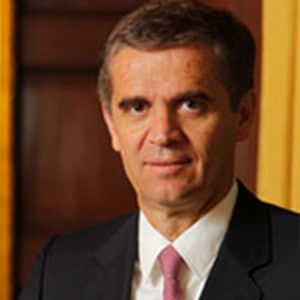
Vergara is credited with helping the Chilean economy avoid a full-blown recession, even as it remains in slowdown mode. The world’s largest copper exporter, Chile has posted strong growth fueled by commodity exports that slowed amid tempered Chinese demand. The International Monetary Fund predicts GDP will grow by 2.5% in 2014 but agrees that the central bank and government are setting the stage for more dynamic growth in 2015. The central bank has cut interest rates to reverse GDP sluggishness, though fueling peso depreciation in the process.
COLOMBIA
José Dario Uribe Escobar
GRADE: A-
Uribe is commended for prudent policies that have helped control inflation and supported economic growth in what recently became Latin America’s third-largest economy (displacing financially challenged Argentina). The central bank has raised the benchmark interest rate in 2014 to keep inflation on target at 3%, as GDP is seen at full capacity. The economy is expected to expand by nearly 5% in both 2014 and 2015. Uribe says remaining security concerns, despite progress on that front, will produce a 5% drop in foreign investment this year.
COSTA RICA
Olivier Castro Pérez
GRADE: B
Castro is one of the region’s newest central bankers, appointed after this year’s inauguration of president Luis Guillermo Solis in January. Having been deputy director of the central bank’s monetary department until his appointment at the bank’s helm, it is no surprise that Castro vowed to make overhauling foreign exchange policies a priority in order to curb forex market volatility. The inflation target remains at 4% for 2014. Castro contends there needs to be a strategic balance between controlling price hikes and stimulating local production.
ECUADOR
Diego Martínez
GRADE: B-
Ecuador posted a current-account deficit for the past four years, with the 2014 gap expected at $4.5 billion. Public spending has more than tripled since president Rafael Correa took office in 2007, prompting the IMF to issue warnings for the administration to curb spending. The government continues to earmark reserves as collateral for foreign loans. Despite having a dollarized economy since 2000, Ecuador now faces currency shortages that prompted the central bank to unveil a plan to issue the world’s first state-backed digital currency.
GUATEMALA
Edgar Barquín Durán
GRADE: B
Barquín’s four-year term as central bank governor expired on September 30 but was characterized by macroeconomic policies that kept Guatemala’s economy in growth recovery mode. GDP is projected to grow by 4% in 2014, with expansion sparked by stronger domestic demand combined with increased remittances from Guatemalans residing abroad. Remittances from the US alone are expected to reach $5.5 billion this year. Barquín will also be remembered for his campaign to end the country’s banking secrecy laws that positioned it as an international tax haven.
MEXICO
Agustín Carstens
GRADE: B
Mexico’s economy remains challenged by sluggishness in the US, which purchases 80% of Mexican exports. Carstens is optimistic the economy will grow by 5% by 2018, but the IMF slashed its 2014 growth forecast to 2.4%. The government launched an ambitious structural reform package to spark growth. Inflation is a concern, remaining at the 4% target ceiling this year, though likely to drop to 3% in 2015. Despite such challenges, reserves are a record $190 billion and are supplemented by a $75 billion IMF credit facility.
PERU
Julio Velarde Flores
GRADE: B+
The economy continues to slow after a commodity-based boom, but the central bank has worked to keep it from slipping further, while creating an environment for recovery. The central bank cut interest rates this year in response to a 12% decline in exports during the first five months of 2014, which followed last year’s 9.4% export drop. The bank also eased reserve requirements to boost lending and fuel consumption. Fiscal stimulus, increased mining output and aggressive public works investments are expected to support a turnaround.
UNITED STATES
Janet Yellen
GRADE: TOO EARLY TO SAY
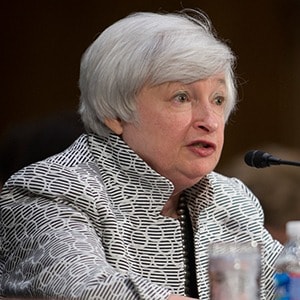
Attaining maximum employment is the main goal of the Fed under Yellen, who so far appears unworried about the recent acceleration in inflation. The danger is that the US Federal Reserve could wait too long to firm monetary policy, increasing the need for a sudden, large increase in rates. After a surprising contraction in real GDP early this year, economic growth has since picked up. With the economy and inflation both getting back on track, the time is nearing for the Fed to adopt a more balanced approach, economists say. Yellen sees substantial slack in the labor market but says that if employment improves more quickly than expected, the Fed could act.
URUGUAY
Alberto Graña
GRADE: B
When Graña, a long-term central bank official, was appointed governor in January, the decision was ratified with a unanimous Senate vote. Graña’s stated priorities were to reduce Uruguay’s troubling inflation, which ended 2013 at 8.5% and remains above 9% in 2014, while also facing the potential local impact of the United States’ unwinding of monetary stimulus policies. Among his immediate successes has been a plan to trade with Brazil using local currencies. Set to go into effect before year-end, the plan avoids dollar purchases and reduces transaction costs.
VENEZUELA
Nelson Merentes
GRADE: D
When Merentes was appointed governor in January, observers lauded his more pragmatic and less ideological stance. Analysts claimed Merentes, a former central bank chief and finance minister, advocated for loosening strict currency controls to provide businesses with access to dollars and halt the bolivar’s weakening. However, Merentes has since been cautious not to implement policies that could hurt president Nicolás Maduro’s reelection chances in 2019. He is unlikely to adopt significant measures until after 2015’s midterm elections, even as Venezuela’s socialist economy remains in a freefall.
2014 Central Banker Summaries | Europe
BELARUS
Nadezhda Ermakova
GRADE: C
In the past 12 months, Ermakova and the National Bank of the Republic of Belarus have focused on reducing stubbornly high inflation. The bank’s target at the end of 2013 was for inflation to reach 12%, but in August the inflation rate was around 20%. Ermakova has her work cut out for her, particularly as the central bank has yet to adopt a formal inflation-targeting regime. In its 2013 report on Belarus, the International Monetary Fund stated that “a lack of forward-looking elements and the ad hoc use of multiple instruments—policy rates, reserve requirements and administrative measures—were key weaknesses of an incomplete monetary framework.” The IMF encouraged the NRBB to make progress toward adopting an inflation-targeting framework.
BULGARIA
Ivan Iskrov
GRADE: B-
Recent monetary policy decisions by the Bulgarian National Bank have been overshadowed by political controversy, with Bulgaria’s parliament demanding the resignation of the central bank governor and accusing the bank of not properly supervising domestic banks. Bulgarian bank Corpbank (Corporate Commercial Bank) was placed under central bank supervision with deposits frozen pending the result of an audit ordered by the central bank. The central bank is responsible for bank supervision, but Iskrov has found himself between a rock and a hard place, with politicians keen to point the finger at BNB with respect to the uncertainty surrounding Corpbank’s future and its date for commencing full banking operations. Iskrov and the BNB had put forth a rescue package for Corpbank, but it failed to achieve a political consensus.
CZECH REPUBLIC
Miroslav Singer
GRADE: B+
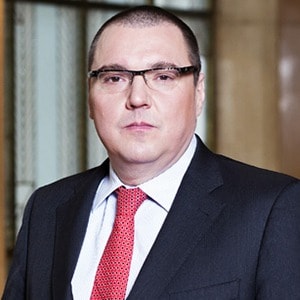
The past 12 months saw a continuation of the Czech National Bank’s interventions in the foreign exchange markets to try to weaken the koruna. With the bank’s key interest rates remaining close to zero, the exchange rate is being used as an additional instrument for easing monetary conditions. Singer and the central bank have remained resolute in intervening in the FX markets to keep the exchange rate close to 27 korunas to the euro and have said they will continue to do so to avoid undershooting the inflation target of 2%. In a June 30 report, the IMF stated that the tail risk of a self-fulfilling deflationary spiral seems to have been averted, and it supported continuating the bank’s interventionist policy while inflation remains low.
DENMARK
Lars Rohde
GRADE: B+
According to the Danmarks Nationalbank, the peg to the euro has served the country well in terms of anchoring inflation expectations. However, more recently, the Danish krone has become a safe haven for international investors, and that development has made supporting the peg more challenging. Rohde has shown he is up to the task, however, wasting no time in taking decisive action. In April the central bank increased the rate of interest on deposit certificates by 0.15 percentage point and intervened in currency markets, selling the krone to temper the impact of higher short-term rates in the eurozone.
EUROPEAN UNION
Mario Draghi
GRADE: A-
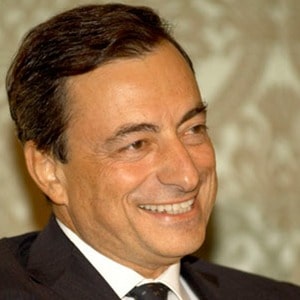
At some point Draghi may regret ever saying that he would do whatever it takes to preserve the single currency. Low economic growth, high unemployment and deflationary pressures continue to plague the eurozone, which is putting pressure on the European Central Bank president to embark on a round of quantitative easing. Some pundits, however, argue that Draghi has done as much as he can, given the political constraints he is under, and he has certainly demonstrated a willingness to try new things. In June the ECB became the first central bank to introduce negative interest rates, lowering its deposit facility to -0.10%. Following a meeting of the central bank’s governing council in early September, Draghi did not deliver on the QE front. With some council members in favor of more monetary stimulus and others preferring to do less, Draghi presented a proposal that he said “struck the middle of the road.” The ECB cut three key interest rates: the rate on the main refinancing operations by 10 basis points to 0.05%, the rate on the marginal lending facility by 10 basis points to 0.30%, and the deposit facility by 10 basis points to -0.20%. The ECB stopped short of quantitative easing but decided to launch an asset-backed securities (ABS) purchase program to try to facilitate new credit flows. It will also purchase euro-denominated covered bonds issued by monetary financial institutions in the eurozone. Both programs will commence in October. The question is: Will it be enough to stimulate growth and control inflation?
HUNGARY
György Matolcsy
GRADE: B-
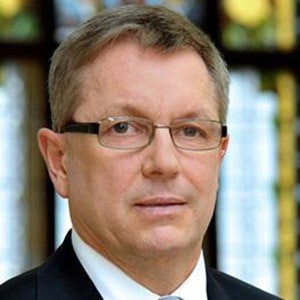
Matolcsy was only appointed to the top post at Magyar Nemzeti Bank in March last year. His appointment was shrouded in controversy, with a former deputy governor bringing into question the new administration’s qualifications and experience. Questions were also raised about the central bank’s independence, with Matolcsy reportedly being the “right hand man” of prime minister Viktor Orban. Since assuming the governorship, Matolcsy has continued the practice (in place since August 2012) of cutting the key policy rate. But in July he surprised markets with a further 20 bps reduction, leaving the key policy rate at a record low of 2.1%. Critics warned against further cuts, pointing to the fact that the forint had already fallen to two-year lows against the euro.
NORWAY
Øystein Olsen
GRADE: B-
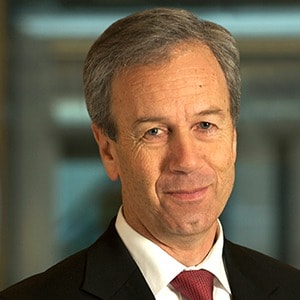
In June, Olsen’s central bank caught markets by surprise when it revised its economic growth forecasts downward, a move that saw the Norwegian krone fall sharply against the euro and the dollar. The central bank stated that projections for the Norwegian economy show that capacity utilization may edge down in the coming year, rising gradually thereafter. The bank has kept its key policy rate at 1.5% since March 2012, yet when other major European central banks have had rates close to zero for some time, some have asked whether the bank could have shaved a few basis points off the key policy rate now, instead of waiting for things to get worse, as underlying inflation is projected to remain within the bank’s 2.5% target.
POLAND
Marek Belka
GRADE: B-
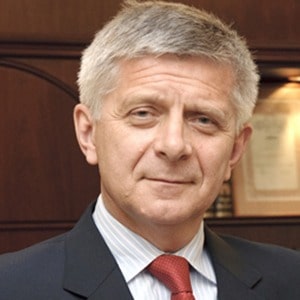
Belka slipped from a Grade B last year to a B- this year, largely because of the doubts that have been raised in recent months about the National Bank of Poland’s independence. With headlines such as “Can Belka keep his job?” it seems monetary policy and Belka’s strong economic track record, both at the central bank and as a former director of the IMF’s European department during the European bank bailouts, have been overshadowed by remarks the central bank governor is said to have made on a secret recording published by a Polish magazine. According to media reports, in the recording Belka appears to discuss the Finance minister being fired in return for future central bank intervention in the economy ahead of elections.
ROMANIA
Mugur Isărescu
GRADE: B
Unlike some of his more hawkish central bank counterparts, a dovish Isărescu in recent months has demonstrated his willingness to reduce interest rates as inflationary pressures ease. The National Bank of Romania has gradually eased rates since July last year. Since February the main policy rate has remained at 3.5%, but at its August 4 meeting the NBR lowered the rate to 3.25%. Isărescu and the board also sought to shore up financial stability by continuing to carefully manage liquidity in the banking system and maintaining the existing levels of minimum reserve requirement ratios on both leu- and foreign-currency-denominated liabilities of credit institutions. One hopes that Isărescu’s ever watchful stewardship of the economy combined with prudential rules and financial intermediation will safeguard Romania’s economy against any external shocks.
RUSSIA
Elvira Nabiullina
GRADE: B
Nabiullina, who succeeded Sergei Ignatiev to become the first woman to run the central bank of a G8 economy, looked set to maintain her predecessor’s hawkish stance when it came to lowering rates to sustain economic growth. Since she took over, of course, the Russian economy has had to withstand sanctions imposed by a range of countries following its military incursions into Eastern Ukraine. The IMF says the Central Bank of the Russian Federation helped contain the heightened currency and liquidity stresses caused by the situation in Ukraine via a succession of policy rate hikes and currency interventions. With inflation in Russia hovering around 6.5%, the IMF also welcomes the central bank’s ongoing transition to an inflation-targeting regime.
SWEDEN
Stefan Ingves
GRADE: B+

In recent months, Stefan Ingves and the Sveriges Riksbank have attracted criticism from some quarters because the country has failed to achieve its inflation target. To address the issue of deflation, in July the Riksbank cut the repo rate by 0.5 percentage point to 0.25% in order to drive inflation up toward the bank’s 2% target. However, ever cognizant of the dangers that lower interest rates pose in terms of rising household debt, Ingves and his first deputy governor voted against the July rate cut, instead proposing a cut of 0.25 percentage point to 0.5% and maintaining the repo rate at that level until 2016. Ingves may not have gained the support of the rest of the Riksbank’s executive board, but he demonstrated his willingness to stick to his guns and his desire to maintain an eye on household debt.
SWITZERLAND
Thomas Jordan
GRADE: A
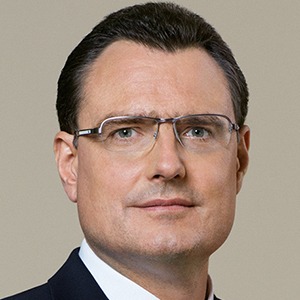
Jordan has restored an era of calm at the Swiss National Bank and taken the personality out of central banking following the scandal surrounding his predecessor, Philipp Hildebrand, who quit as central bank chief in 2012 following allegations surrounding currency trades made by his wife. In an effort to weaken the Swiss franc, which remains stubbornly high owing to its safe-haven status among investors, Jordan continued to defend the currency floor of SFr1.20 per euro and indicated that it would “purchase foreign currency in unlimited quantities for this purpose.” Driving a strong Swiss franc down would also help with inflation, which remains stubbornly low. The SNB expects the inflation rate to be 0.2 percentage point lower for both 2014 and 2015, at 0% and 0.4%, respectively.
TURKEY
Erdem Başçi
GRADE: B-
The Central Bank of the Republic of Turkey’s monetary policy has always been slightly unconventional, but in recent months Başçi was accused of sending mixed signals to markets and investors by cutting rates even though inflation remains relatively high (in June annual inflation was 9.2%). In July annual food inflation fell to 12.5%, but in processed foods (bread, cereals) annual inflation rose to 12.2%. The central bank, however, pointed to “expansionary effects on global liquidity conditions and a recovery in capital inflows toward emerging economies,” which prompted it to deliver what it termed a “measured cut” in the one-week repo rate in July. The central bank stated that it would keep a tight monetary policy until the inflation outlook improved. Critics, however, suggested that the rate cut might have been politically influenced as then prime minister Recep Tayyip Erdoğan (now president) had called for major interest rate cuts.
UKRAINE
Valeria Hontareva
GRADE: TOO EARLY TO SAY
Last year, Ihor Sorkin, then deputy head of Ukraine’s central bank, replaced Serhiy Arbuzov (now Ukraine’s first deputy prime minister) as governor of the National Bank of Ukraine. Since then the Yanukovich government has been overthrown and Ukraine is fighting Russian-supported separatists in the east of the country. In June, Ukraine’s new president, Petro Poroshenko, nominated former investment banker Valeria Hontareva as the new head of the central bank, a move that was viewed by international investors as a positive sign, given her knowledge of and experience with financial markets. Hontareva’s immediate challenge will be arresting the fall of the hryvnia.
UNITED KINGDOM
Mark Carney
GRADE: B-
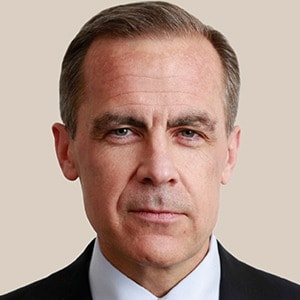
Carney’s governorship of the Bank of England was one of the most anticipated central bank appointments in a major G8 country in recent history. He has already made his mark by steering the focus of the bank away from inflation targeting, instead focusing on employment as a gauge of what the central bank will do next when it comes to interest rates. Since Carney took office, the base rate has remained at 0.5%. However, divisions are beginning to emerge under his leadership. At the most recent Monetary Policy Committee meeting held in early August, two members of the seven-member committee voted to increase the base rate by 25 basis points, which suggests that some are getting frustrated with Carney’s wait-and-see stance. More recently, Carney has sent mixed messages to markets about when a rate rise is likely. The IMF states in a June report that the BoE needs to reduce the risk of potential market surprises without imparting a false sense of certainty about the evolution of interest rates. “Further, now that the Financial Policy Committee also plays a key role in affecting economic conditions,” the IMF adds, “the bank faces the additional challenge of explaining the coordination of monetary and macroprudential policies.”
2014 Central Banker Summaries | Europe
AUSTRALIA
Glenn Stevens
GRADE: B+

The Reserve Bank of Australia says it is comfortable in keeping its policy rate at a 50-year low of 2.5% for an extended period. Governor Stevens says there is “still quite some way to go” before nonmining activity fully picks up the slack from a slowdown in the mining sector. He has continued to talk the exchange rate down, saying that the Australian dollar is high by historical standards and that there could be a significant fall in the currency at some point. While monetary policy remains accommodative, rates could rise modestly next year if the economy improves.
AZERBAIJAN
Elman Rustamov
GRADE: C
Azerbaijan’s central bank cut its refinancing rate by a half point to 4.25% at the end of April, as economic growth slowed sharply from last year’s 5.8% and inflation remained below target. The country is highly dependent on oil and gas exports. Limited increases in oil production could restrict future growth. Over the longer term, the central bank plans to reduce direct lending to public entities and to make the exchange rate more flexible. It also needs to improve regulation of the country’s underdeveloped banking sector.
BANGLADESH
Atiur Rahman
GRADE: C
Bangladesh Bank failed to meet its private-sector credit growth target in the latest fiscal year, as political unrest dampened investment. The bank also declined to lower interest rates, as it sought to contain inflation, which is around 7%. Following last year’s collapse of the Rana Plaza building outside Dhaka, which killed 1,130 garment workers, failure to meet global safety standards is threatening the industry, the main source of export earnings. Meanwhile, remittances from overseas workers fell, after Arab oil-exporting countries in the Middle East blocked the entry of more Bangladeshi workers.
CHINA
Zhou Xiaochuan
GRADE: B-
China’s monetary policy remains an enigma. The People’s Bank of China lowered the rate on 14-day repos by 10 basis points to 3.7% at the end of July, at the same time that it drained liquidity. Meanwhile, central bank officials are forecasting a strong lending surge to prop up the real estate market. Policy seems to be easing to support economic growth, with the money supply likely to come in above target this year. Governor Zhou is seeking ways to stabilize interest rates, following big swings in recent years. The central bank could adopt an interest rate corridor to provide more certainty. It said in a recent report that such a system could “effectively guide and adjust market rates.”
HONG KONG
Norman Chan
GRADE: B
The Hong Kong Monetary Authority, the de facto central bank, stepped into the foreign exchange market in July for the first time in 18 months to prevent the Hong Kong dollar from rising above its narrow trading channel of HK$7.75 to HK$7.85 to the US dollar. China’s tight credit policies have increased the demand for loans in Hong Kong. An increase in mergers and acquisitions added to demand for the Hong Kong currency. The Hong Kong Monetary Authority says it will maintain the stability of the currency in accordance with currency-board arrangements.
INDIA
Raghuram Rajan
GRADE: A
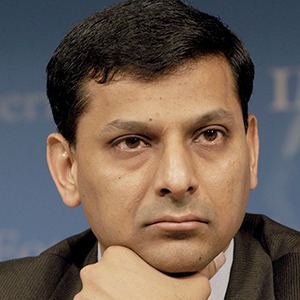
So far, Governor Rajan has lived up to his stellar advance billing. The Indian economy is rebounding, and the rupee’s volatility has declined to a three-year low. Rajan is working with prime minister Narendra Modi to devise a system of inflation targeting that could help to curb rising consumer prices. Meanwhile, Rajan is speaking out on the need for more coordination in monetary policy by central bankers around the world, as the effects of their unconventional policies spill across borders. The current “nonsystem” in international monetary policy is a source of substantial risk, he says.
INDONESIA
Agus Martowardojo
GRADE: B
Bank Indonesia has kept its policy rate unchanged at 7.5% so far this year, but it has a tightening bias in light of the fact that inflation is above target. By keeping its policy tight, the central bank expects domestic demand to ease, reducing the need for imported oil. Rising manufactured exports should contribute to real GDP growth of 5.1% to 5.5% this year, the bank forecasts. Joko Widodo, a former furniture exporter and governor of Jakarta, who won July’s presidential election, is likely to adopt market-friendly policies, analysts say.
JAPAN
Haruhiko Kuroda
GRADE: B+
The Bank of Japan is making progress in its goal of defeating deflation, although additional easing may be required. The bank expects real GDP growth of only 1% this year, assuming an extension of the current stimulus plan. Inflation for both fiscal years 2015 and 2016 is forecast to be roughly in line with the bank’s 2% target. The April sales tax rise depressed consumer demand, although the bank expects its negative effect to gradually diminish. The tax increase was designed to help bring Japan’s massive debt under control.
KAZAKHSTAN
Kairat Kelimbetov
GRADE: C
Kazakhstan’s central bank devalued the tenge by 19% in February, instead of raising interest rates or depleting reserves to support the currency. The result was a rise in reported inflation to 7% in June from 4.5% in February. Meanwhile, economic growth has slowed to less than 4% from 6% in 2013. The oil-rich country imports most consumer goods. Kelimbetov, a former deputy prime minister, was named central bank governor last October, replacing Grigory Marchenko. At the end of May, Kazakhstan joined the Eurasian Economic Union with Russia and Belarus.
MALAYSIA
Zeti Akhtar Aziz
GRADE: A

Bank Negara Malaysia raised its policy rate by a quarter point at its July meeting to 3.25%, its first increase since May 2011. The economy remains strong, and exports are expected to benefit from the recovery in the advanced economies, the bank says. Inflation has been running above its long-term average, and Bank Negara raised its policy rate to anchor inflation expectations. Zeti, who has been governor of the central bank since 2000, warned earlier this year that inflation could pick up in 2015, with a new 6% goods-and-services tax scheduled to come into effect next April.
NEW ZEALAND
Graeme Wheeler
GRADE: B
The RBNZ raised interest rates repeatedly this year, as inflation pressures picked up amid a property boom. The bank was one of the first to use an official inflation target to guide monetary policy decisions, beginning in 1990. In March of this year, the bank began raising rates from a record low 2.5%, becoming the first central bank among the developed countries to increase rates in the current cycle. The rising rates have boosted the New Zealand dollar, which could limit the bank’s appetite for further tightening.
PAKISTAN
Ashraf Mahmood Wathra
GRADE: TOO EARLY TO SAY
Wathra was confirmed in April as Pakistan’s third central bank governor in four years. He had served as acting governor since January. The State Bank of Pakistan has kept the discount rate unchanged at 10%. Rising foreign reserves have halted a decline in the rupee. The economy is expanding at a moderate rate of just above 4%, while core inflation has remained steady at about 8%. Pakistan is reforming its economy and trimming its budget deficit to meet conditions of an IMF loan.
PHILIPPINES
Amando Tetangco Jr.
GRADE: A
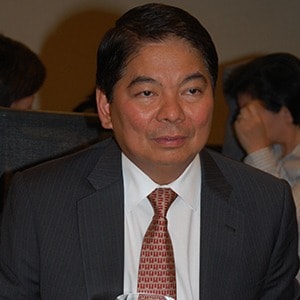
The Philippine central bank raised its official rate a quarter point in July to 3.75%, in a preemptive response to signs of inflation pressure. Earlier this year it raised the rate on special deposit accounts and increased the reserve requirement ratio from 18% to 20%. Inflation remains within the bank’s 3% to 5% target range, but the target will be lowered to 2% to 4% in 2015. Meanwhile, the economy continues to grow at about a 6% annual rate, and inflows of remittances are steady, contributing to a rise in foreign exchange reserves. The country’s elevation to investment-grade status reflects its strong macroeconomic fundamentals and its favorable economic prospects going forward, Governor Tetangco says.
SINGAPORE
Ravi Menon
GRADE: B
Singapore’s monetary policy is focused on managing the exchange rate to keep inflation under control. The Monetary Authority of Singapore says it will maintain its policy of allowing a “modest and gradual” appreciation of the Singapore dollar, despite a slowdown in the economy. The MAS says wage pressures will persist, with tight conditions in the labor market, as the government seeks to reduce its reliance on foreign workers. China is the main destination for Singapore’s exports, followed by Europe and the US.
SOUTH KOREA
Lee Ju-yeol
GRADE: TOO EARLY TO SAY
Lee has maintained an accommodative monetary policy since succeeding Kim Choong-soo, whose four-year term ended in March. The Bank of Korea delivered a quarter-point cut in its policy rate in August, citing the lack of significant recovery in domestic demand following the Sewol ferry disaster in April. Lee is not likely, however, to make any major changes in policy. Inflation remains below target.
SRI LANKA
Ajith Nivard Cabraal
GRADE: B+
With low inflation and GDP growth of more than 7%, the Sri Lankan economy is performing well. Five years after the end of its 26-year civil war, Sri Lanka’s tourism industry is booming and hotel construction is rising sharply. The trade deficit has narrowed, and remittances from overseas workers are rising. The central bank cut its lending rate by a half point to 8% in January, despite the IMF’s suggestion that it wait for earlier reductions to take effect. The public debt, which stands at about 78% of GDP, is a risk factor if borrowing costs rise.
TAIWAN
Fai-Nan Perng
GRADE: A
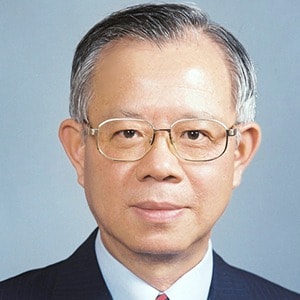
Taiwan’s central bank has kept interest rates on hold, despite a small rise in inflation, which remains below the bank’s 2% target. Governor Perng says the economy is still operating below its potential and needs an accommodative monetary policy. At the same time, Perng, as governor of the central bank has taken steps to cool the booming property market by tightening mortgage lending. The economy is benefiting from a sharp rise in Chinese visitors and rapid growth in the offshore renminbi market. Exports remain concentrated in semiconductors, although machinery and metals exports are growing.
THAILAND
Prasarn Trairatvorakul
GRADE: B
The Bank of Thailand cut its official repurchase rate by a quarter point in March to 2%, a three-year low, as the economy contracted amid political turmoil and lower prices for sugar and rubber exports. The Thai baht depreciated and bond yields rose briefly, following a military coup in May. The junta resumed subsidy payments to rice farmers, cut diesel prices and increased spending to boost economic growth. The central bank expects real GDP to rise 1.5% this year and to accelerate to 5.5% growth in 2015, if an expected recovery in tourism materializes.
UZBEKISTAN
Fayzulla Mullajanov
GRADE: D
Uzbekistan’s monetary policy remains accommodative, despite double-digit inflation. The central bank, which lacks independence, lowered its refinancing rate to 10% from 12% in January. The authoritarian regime of president Islam Karimov has created a poor climate for foreign direct investment. Following its latest visit last year, the IMF said the authorities should tighten monetary policy and increase exchange-rate flexibility. Remittances from overseas workers are keeping the economy afloat. The country’s main exports are natural gas, gold and cotton, much of which is picked by forced labor.
VIETNAM
Nguyễn Vǎn Bình
GRADE: B-
The State Bank of Vietnam devalued the dong against the dollar by 1% in June for the second straight year. Although the devaluations are aimed at boosting exports, they also raise the price of imports. In March the central bank cut a series of key interest rates to stimulate economic growth. The country’s 6.6% inflation rate last year was the lowest in a decade. “Returning the banking system to health is critical,” HSBC says. Vietnam needs to restructure state-run firms, recapitalize the banking system and improve its financial system regulation to reduce nonperforming loans, according to HSBC.
2014 Central Banker Summaries | Middle East & Africa
ALGERIA
Mohammed Laksaci
GRADE: B-
Algeria’s GDP growth was about 3% in 2013, while inflation slowed to 3.3% from 8.9% in 2012. The oil-producing country has a low external debt and nearly $200 billion of foreign exchange reserves, equivalent to three years of imports. The IMF says the decline in inflation brought about by monetary tightening and fiscal consolidation is welcome. However, it advised the central bank to stand ready to raise rates if necessary in light of a recent surge in credit to the economy and planned increases in government spending.
ANGOLA
José de Lima Massano
GRADE: B+
The National Bank of Angola has kept its key policy rate unchanged at 9.25% so far this year, after lowering it by a half point last November. The IMF expects real GDP to increase by 5% this year, as oil production recovers. It says Angola has returned to solid economic growth with single-digit inflation, strong international reserves and a stable exchange rate. Governor Massano expects the non-oil sector to expand by 9% this year, amid investments in roads and power production. A new law requires foreign oil companies to use kwanza to pay local suppliers. Increased use of the kwanza has improved the effectiveness of monetary policy, Massano says.
BAHRAIN
Rasheed Mohammed Al Maraj
GRADE: B-
With its currency pegged to the dollar, Bahrain has little flexibility in its monetary policy. The central bank has kept its repurchase rate at 2.25% in recent years. The economy expanded by more than 5% last year, driven by a rebound in the oil sector that is unlikely to last, according to Capital Economics. Meanwhile, political tensions remain elevated and fiscal policy needs to be tightened, which could limit GDP growth to 2.5% this year and next, Capital Economics says. The central bank is studying the status of stalled real estate projects at the request of the country’s ruler.
EGYPT
Hisham Ramez
GRADE: B
Egypt’s central bank raised its key interest rates by a full point in July, in an attempt to contain an expected rise in inflation after the government cut energy subsidies and raised prices for electricity. It said the preemptive rate rise was warranted “to anchor inflation expectations and hence limit a generalized price increase, which is detrimental to the economy over the medium term.” The country’s economic growth remains well below levels needed to bring down the unemployment rate, economists say. Partly as a result of the higher interest rates, investment may not recover as
quickly as expected.
ETHIOPIA
Teklewold Atnafu
GRADE: B-
Ethiopia’s economy continues to experience strong growth and single-digit inflation. The IMF forecasts GDP growth of between 8% and 8.5% over the next two years. It says recent stable inflation makes this a good time to introduce market-based instruments of monetary control. The country’s foreign exchange market needs to be made more flexible to promote the competitiveness of exports, it says. Meanwhile, continued large borrowing by the public sector is crowding out the private sector.
GHANA
Henry Kofi Wampah
GRADE: C
In the face of high fiscal and current-account deficits and a weakening currency, the Bank of Ghana increased its policy rate by two percentage points to 18% in February, and by an additional point to 19% in July, in addition to raising bank reserve requirements. The high interest rates and a sharp decline in the cedi have begun to weaken private-sector activity. The IMF says GDP growth is expected to slow to 4.75% this year from 5.5% in 2013. The Bank of Ghana denied a Fitch report that implied it was printing money to finance the country’s budget deficit. The bank says it was acting to support general economic activity.
IRAQ
Abdul Basit Turki
GRADE: B-
Just as Iraq’s economy was showing signs of increased growth amid rising oil production, fighters from the militant ISIS group swept across northern and western parts of the country in June and occupied Mosul, Iraq’s second-largest city. Governor Turki says he is unconcerned about the ability of the central bank to manage monetary policy and maintain the stability of the Iraqi dinar in these exceptional circumstances. The central bank bought 36 metric tons of gold in March to help stabilize the currency. Turki says the bank has enough reserves to set the exchange rate as it pleases.
ISRAEL
Karnit Flug
GRADE: A
Flug became the first woman to head the Israeli central bank, after being passed over twice for the job. She was appointed governor last October, after serving as acting governor since her mentor, Stanley Fischer, stepped down four months earlier. Fischer went on to become vice chairman of the US Federal Reserve. The Bank of Israel was fully justified in cutting its policy rate three times this year. In February it lowered the rate by a quarter point to 0.75%, amid lower inflation, a rising shekel and slower than expected economic growth. The central bank lowered its policy rate again in July, to 0.5%, with inflation continuing to run at the bottom of its 1% to 3% target range. In August it cut the rate to 0.25%, its lowest level ever, as the economy slowed further on a decline in tourism due to the war in the Gaza strip.
JORDAN
Ziad Fariz
GRADE: B
The Central Bank of Jordan has been gradually lowering interest rates to promote economic growth at a time when inflation has remained subdued. The bank lowered its key policy rates by a quarter point last October and by another quarter point in January 2014. In June it cut the interest rate on its overnight deposit window facility and its weekly repurchase agreements by a half point each. The IMF says Jordan’s economy is gradually picking up, with GDP expected to increase to 3.5% in 2014 from 2.9% in 2013. Still, the conflict in Syria is weighing on the economy, and gas supplies from Egypt are subject to fluctuations, the IMF says.
KENYA
Njuguna Ndung’u
GRADE: B+
The central bank has kept its overnight loan rate unchanged at 8.5% so far this year, while encouraging commercial banks to narrow their lending margins, particularly for home mortgages. Property developers say high mortgage rates are making it impossible to meet government targets for new housing. Meanwhile, the economy has continued to expand, and a benchmark revision to the country’s GDP system could bring 2013 economic growth to as high as 20%, economists say. Following a $2 billion bond issue in June, Kenya’s reserves have reached a level equivalent to more than five months of imports.
KUWAIT
Mohammad Yusuf Al-Hashel
GRADE: B+
Bank governor Al-Hashel has kept a steady hand on monetary policy, while speaking out about the need for economic reforms to give the private sector a more significant role in Kuwait’s economy. The discount rate was last cut in October 2012 by a half point to 2%. In an annual press conference in April, Al-Hashel said reliance on oil revenues is “hampering sustainable economic development.” He said chronic economic challenges facing the government were the result of “a failure to comply with disclosure, transparency and governance, in addition to political disputes.”
LEBANON
Riad Salameh
GRADE: B
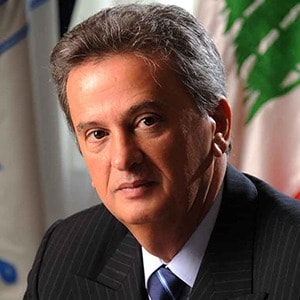
The Bank of Lebanon has done its best to keep the economy growing, while managing the government’s huge debt, amid a political stalemate and effects from the Syrian conflict. The unemployment rate has soared to 20%, as the labor market has swelled with an influx of refugees. The central bank has maintained steady interest rates through its intervention in the bond market. It has also extended loans to commercial banks at a 1% interest rate and allowed banks to invest 3% of their capital in technology start-ups.
MOROCCO
Abdellatif Jouahri
GRADE: B
Bank Al-Maghrib has kept its policy rate steady at 3% so far this year. GDP growth rebounded in 2013 to 4.5%, owing to a bumper cereal crop following a severe drought a year earlier. A reduction in energy subsidies last year helped to narrow the country’s fiscal deficit. The central bank expects inflation to average 1.8% in 2014, with GDP growth likely to slow to 2.5% to 3%.
NIGERIA
Godwin Emefiele
GRADE: TOO EARLY TO SAY
Nigeria’s central bank kept its benchmark rate unchanged at a record high 12% in July, at the first monetary policy meeting since Governor Emefiele assumed office in June. Emefiele took over from Lamido Sanusi, who was suspended in February after he charged that $20 billion of government oil revenue was missing. Emefiele says he would like to pursue a gradual reduction of interest rates once inflation eases. Consumer price inflation in June was 8.2%, within the bank’s 6% to 9% target range, but the highest in 10 months.
OMAN
Hamood Sangour Al Zadjali
GRADE: B
The Central Bank of Oman pegs the rial to the dollar and manages liquidity through an online deposit facility. The central bank has kept its benchmark rate at a record low 1% since March 2012. The country’s GDP increased 4.6% in the first quarter of 2014, supported by sustained high oil prices. In October 2013, the bank cut the ceiling on interest rates that commercial banks are allowed to charge on new personal loans to 6% from 7%. Banks also must extend at least 5% of total credit to small and midsize companies.
QATAR
Abdullah Saud Al-Thani
GRADE: B
Qatar, the world’s largest exporter of liquid natural gas, continues to enjoy large surpluses that enable it to support a massive infrastructure buildup. GDP rose 6.5% in 2013 and likely will grow close to that level again this year, before accelerating again in 2015, as a new gas field comes online. Economists say the biggest risk to the economy is a potential overheating as Qatar rushes to build new roads and stadiums to host the 2022 World Cup, assuming the event is not derailed by bribery allegations. The central bank has held its overnight lending rate unchanged at 4.5% so far this year.
SAUDI ARABIA
Fahad al-Mubarak
GRADE: A
The Saudi Arabian Monetary Agency, the kingdom’s central bank, has limited leeway in setting monetary policy, because of the riyal’s peg to the dollar. It has done an excellent job in managing the country’s banking system and in regulating the insurance industry. SAMA also manages Saudi Arabia’s massive reserves, estimated at $730 billion, although it may soon share that duty with a proposed sovereign wealth fund. Strong growth in the private sector and steady oil production could boost GDP growth to 4.6% this year from 4% in 2013, the IMF says.
SOUTH AFRICA
Gill Marcus
GRADE: C

The South African Reserve Bank raised its policy rate by a quarter point to 5.75% in July, despite a weak economy that was threatening to tip into recession. The rise followed a half-point increase in January, as the rand sank amid an emerging markets crisis, fueling already high inflation. “This weak growth outlook is not something monetary policy can ameliorate,” Marcus says. “The monetary policy dilemma is complicated by the fact that the economy is not experiencing significant demand-side inflation.”
TUNISIA
Chedly Ayari
GRADE: B
Tunisia’s central bank has kept a close watch on inflation, as the country attempts to complete a political transition. The central bank raised its policy rate by a half point to 4.5% last December, citing inflation pressures. At the same time, it lowered bank reserve requirements to 1% from 2%, to ensure adequate liquidity in the economy. A stalemate between the former, Islamist-led government and the secular opposition gave way early this year to a caretaker government. A presidential election is scheduled for November. The central bank raised its policy rate by a quarter point in June to 4.75%, as inflation edged above its 5.4% target for 2014.
UNITED ARAB EMIRATES
Sultan Nasser al-Suwaidi
GRADE: B
The UAE central bank has kept its overnight repurchase rate unchanged at a record-low 1% since January 2009. The country’s dirham currency is pegged to the dollar. The federation of seven emirates, including Abu Dhabi and Dubai, had GDP growth of 5.2% in 2013, as the real estate market recovered quickly. Last November, Dubai won the right to host World Expo 2020. Inflation is expected to increase, and the IMF has warned that policy action may be needed if real estate prices continue rising rapidly. The IMF forecasts GDP growth of 4.8% for 2014, with strong growth in the tourism, hospitality and real estate sectors.



